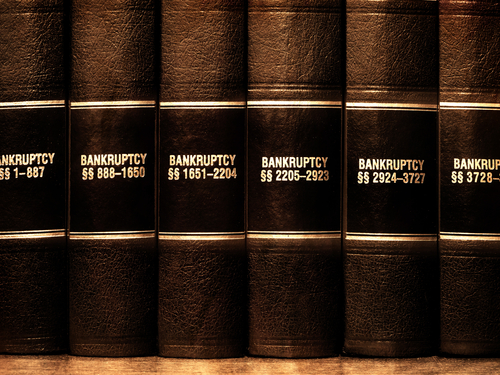By Michael L. Moskowitz and Melissa A. Guseynov
 Generally, the concept of “reclamation” protects vendors in Chapter 11 cases because it provides a way to either retrieve goods delivered to a debtor pre-petition or to recover the value of those goods. On August 24, 2016, Bankruptcy Judge Mary F. Walrath, sitting in the Bankruptcy Court for the District of Delaware, bolstered creditors’ reclamation rights when she overruled an objection to a vendor’s claim for reclamation under section 546(c) of the Bankruptcy Code. In re Reichold Holdings US, Inc., et al., 556 B.R. 107 (Bankr. D. Del. 2016). This decision marks a noteworthy success for vendors asserting reclamation rights under the Bankruptcy Code.
Generally, the concept of “reclamation” protects vendors in Chapter 11 cases because it provides a way to either retrieve goods delivered to a debtor pre-petition or to recover the value of those goods. On August 24, 2016, Bankruptcy Judge Mary F. Walrath, sitting in the Bankruptcy Court for the District of Delaware, bolstered creditors’ reclamation rights when she overruled an objection to a vendor’s claim for reclamation under section 546(c) of the Bankruptcy Code. In re Reichold Holdings US, Inc., et al., 556 B.R. 107 (Bankr. D. Del. 2016). This decision marks a noteworthy success for vendors asserting reclamation rights under the Bankruptcy Code.
Oftentimes, creditors wait too long before demanding reclamation or stopping delivery of their goods. This may result in a substantially smaller recovery on their claims. Trade creditors may significantly increase their recovery by reacting quickly when their buyer files for bankruptcy. This is crucial because once a chapter 11 case is filed, 11 U.S.C. § 546 controls the reclamation process.
Pursuant to Section 546(c) of the Bankruptcy Code, a vendor seeking reclamation rights must make a written demand for the return of goods sold on credit that an insolvent company received within 45 days of that company filing for bankruptcy. In this case, at the time Reichold Holdings US, Inc. (“Reichold”) filed a chapter 11 bankruptcy petition, it was a borrower under a credit facility with Oaktree Capital Management, L.P. (“Oaktree”), which held a lien on substantially all of Reichold’s assets, including inventory. Upon filing for bankruptcy protection, Reichold obtained a debtor-in-possession (“DIP”) loan from a different group of lenders. The DIP loan repaid Oaktree’s loan, and was secured by a first priority lien on all property of the debtor’s estate, including inventory.
Within a few days of Reichold’s chapter 11 filing, Covestro LLC (“Covestro”), a supplier, delivered a written reclamation demand to Reichold. However, Reichold argued that the reclamation demand was valueless since Oaktree’s pre-petition loan was repaid by the DIP loan. The Bankruptcy Court overruled this objection, stating that “Covestro’s reclamation rights arose before the DIP Lenders’ security interest attached, and the DIP Lenders’ lien was expressly subject to reclamation rights under section 546 [of the Bankruptcy Code.]”
In addressing this issue, Judge Walrath focused on whether the post-petition lender’s rights “related back” to the pre-petition lender’s rights. Judge Walrath concluded the pre- and post-petition loans constituted separate and distinct transactions and that satisfaction of the pre-petition Oaktree loan from the DIP loan did not affect Covestro’s reclamation rights.
Significantly, the Court’s holding in Reichold deviates from decisions in New York, where Bankruptcy Courts have held that pre- and post-petition loans constitute an “integrated transaction,” and that the post-petition lender’s rights “relate back” to the pre-petition lender’s rights, thus trumping a vendor’s reclamation claims.
Reclamation claims can raise a myriad of issues, and different venues may present vendors with different outcomes. Vendors who think they may have reclamation rights need assistance from experienced bankruptcy counsel immediately upon learning of a customer’s insolvency or bankruptcy. Feel free to reach out to the attorneys at Weltman & Moskowitz, LLP with any reclamation challenges you, a colleague, or client, may be facing.
About Weltman & Moskowitz, LLP, A New York and New Jersey Business, Bankruptcy, and Creditors’ Rights Law Firm:
Founded in 1987, Weltman & Moskowitz, LLP is a highly regarded business law firm concentrating on creditors’ rights, bankruptcy, foreclosure, and business litigation. Michael L. Moskowitz, a partner with the firm, focuses his practice on business and bankruptcy litigation, as well as creditor’s rights, foreclosure, adversary proceeding litigation, corporate counseling, M&A, and transactional matters. Michael can be reached at (212) 684-7800, (201) 794-7500 or mlm@weltmosk.com. Melissa Guseynov is an associate of the firm. Melissa can be reached at mag@weltmosk.com.







